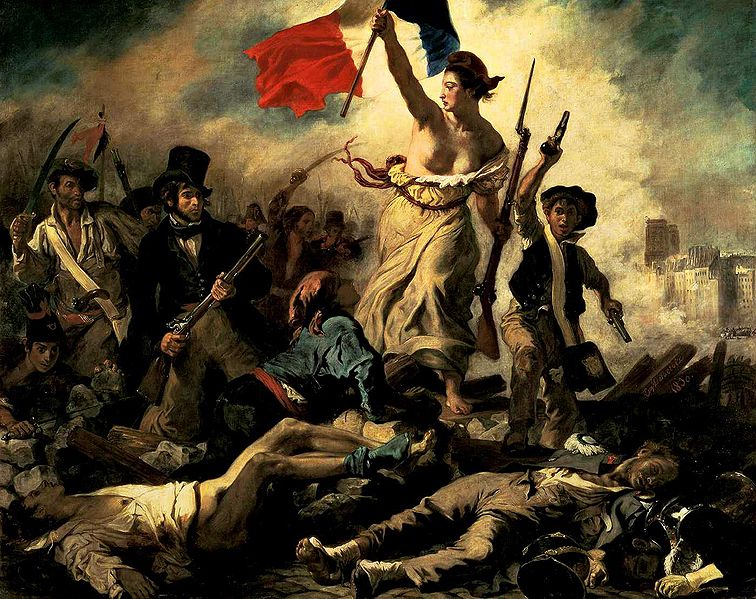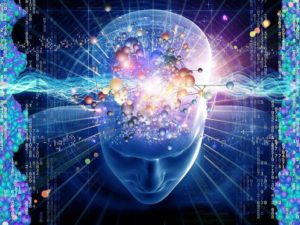On The Nature of True Liberty (13-15)
 |
| Lady Liberty in the French Revolution |
We have been away from the topic for a while now and will return from where we left off.
13. Moreover, the highest duty is to respect authority [he has in mind particularly God's, to whom we owe our existence], and obediently to submit to just law; and by this the members of a community are effectually protected from the wrong-doing of evil men. Lawful power is from God, “and whosoever resisteth authority resisteth the ordinance of God'; [If someone has legitimate authority and that authority is not being used in a way to oppose the ultimate authority of God, it is God's will that we obey it.] (6) wherefore, obedience is greatly ennobled when subjected to an authority which is the most just and supreme of all. But where the power to command is wanting, or where a law is enacted contrary to reason, or to the eternal law, or to some ordinance of God, obedience is unlawful, lest, while obeying man, we become disobedient to God. Thus, an effectual barrier being opposed to tyranny, the authority in the State will not have all its own way, but the interests and rights of all will be safeguarded – the rights of individuals, of domestic society, and of all the members of the commonwealth; all being free to live according to law and right reason; and in this, as We have shown, true liberty really consists.
The feeling of submission to authority doesn't appear pleasant but what redeemed us was Christ's obedience to the Father. Obedience to God and legitimate authority is a virtue. The reason it doesn't appear pleasant is because in obeying we make a sort of admission that we are not the center of the universe. Our will does not become and extension of theirs, our will freely chooses to obey.
14. If when men discuss the question of liberty they were careful to grasp its true and legitimate meaning, such as reason and reasoning have just explained, they would never venture to affix such a calumny on the Church as to assert that she is the foe of individual and public liberty. But many there are who follow in the footsteps of Lucifer, and adopt as their own his rebellious cry, “I will not serve”; and consequently substitute for true liberty what is sheer and most foolish license. [That is a very important distinction—the difference between license and liberty.] Such, for instance, are the men belonging to that widely spread and powerful organization, who, usurping the name of liberty, style themselves liberals.
Believe it or not, the term liberalism is relatively new in the world. It is based on the incorrect idea of freedom. When people call the Catholic Church “conservative”, I just laugh to myself and think…maybe “pre-liberal” is a better description.
15. What naturalists or rationalists aim at in philosophy [here we go], that the supporters of liberalism, carrying out the principles laid down by naturalism, are attempting in the domain of morality and politics. The fundamental doctrine of rationalism is the supremacy of the human reason, which, refusing due submission to the divine and eternal reason [that was the key phrase], proclaims its own independence, and constitutes itself the supreme principle and source and judge of truth. Hence, these followers of liberalism deny the existence of any divine authority to which obedience is due, and proclaim that every man is the law to himself; from which arises that ethical system which they style independent morality, and which, under the guise of liberty, exonerates man from any obedience to the commands of God, and substitutes a boundless license. [The idea is that each man is his own master as long as he doesn't harm any other master's masterhood. This fails to account for everyone's due position subservience to that which created them and holds them in being at every moment.] The end of all this it is not difficult to foresee, especially when society is in question. For, when once man is firmly persuaded that he is subject to no one, it follows that the efficient cause of the unity of civil society is not to be sought in any principle external to man, or superior to him, but simply in the free will of individuals; that the authority in the State comes from the people only; and that, just as every man's individual reason is his only rule of life, so the collective reason of the community should be the supreme guide in the management of all public affairs [Humanism. The state replaces God as it did in the early 20th century in Mexico, Germany, Spain, Soviet Union and various other countries]. Hence the doctrine of the supremacy of the greater number, and that all right and all duty reside in the majority. But, from what has been said, it is clear that all this is in contradiction to reason. To refuse any bond of union between man and civil society, on the one hand, and God the Creator and consequently the supreme Law-giver, on the other, is plainly repugnant to the nature, not only of man, but of all created things; for, of necessity, all effects must in some proper way be connected with their cause; and it belongs to the perfection of every nature to contain itself within that sphere and grade which the order of nature has assigned to it, namely, that the lower should be subject and obedient to the higher.
 Since the 'enlightenment' the idea that there even exists a lower and higher, better and worse, order and disorder has been constantly questioned and disowned. That is why we have ended up with art like this:
Since the 'enlightenment' the idea that there even exists a lower and higher, better and worse, order and disorder has been constantly questioned and disowned. That is why we have ended up with art like this:




